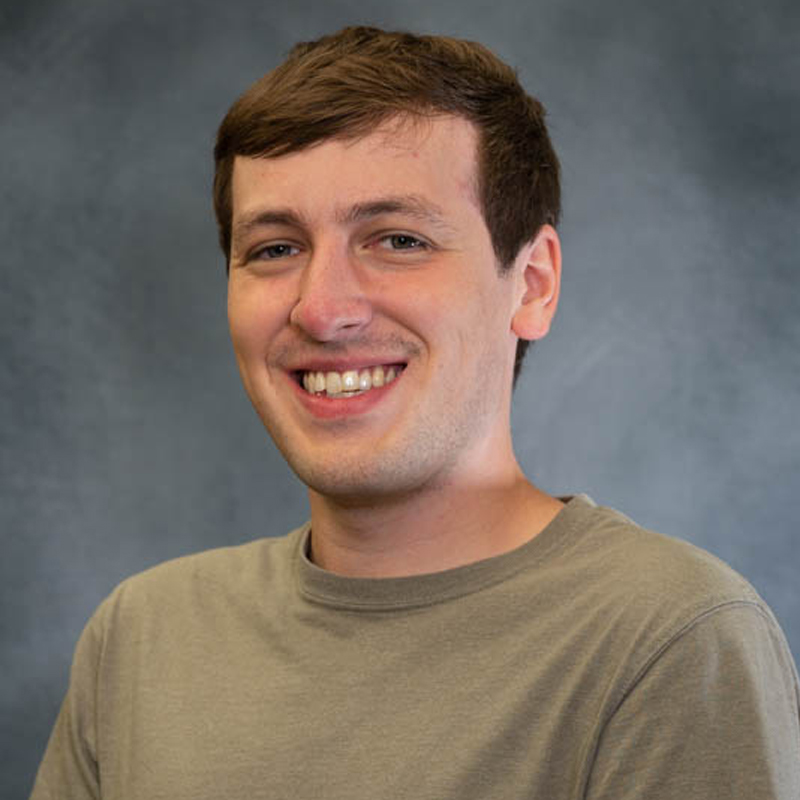Mathematician Awarded NSF Postdoctoral Fellowship
By Ann Lyon Ritchie
Media Inquiries- Interim Director of Communications, MCS
- 412-268-9982
Opportunities often come from connections on a network.
Carnegie Mellon University alumnus and mathematician Felix Weilacher found an opportunity of his own through graduate studies, pursuing computations of relationships on a network.
He completed his Ph.D. at Mellon College of Science’s Department of Mathematical Sciences in May. Weilacher is a 2024 recipient of a National Science Foundation (NSF) Mathematical Sciences Postdoctoral Fellowship to work at the University of California Berkeley. The $190,000 NSF award will advance research titled, “Definable Combinatorics in Descriptive Set Theory, Computability Theory, and Beyond.”
His three-year fellowship will support full-time research in his first year under sponsoring scientist Andrew Marks, followed by two years in a combined position of research and teaching at the University of California Berkeley.
A scholar of logic, Weilacher takes a logic-based perspective on combinatorics, especially graph combinatorics. In mathematics, a network is also called a graph.
“My dissertation was on a collection of various problems I ended up working on in my field,” said Weilacher, who said the theme of his work could be loosely described as definable combinatorics on graphs in various settings and the way in which those settings interact.
He looks to find connections between mathematical models that are technically very different.
“This has been a very active area of research in the past five years or so, and we can learn a lot by trying to study those connections and think about things in a more unified way,” Weilacher said.
The people in Weilacher’s other network — his professional colleagues — have been vital to his career growth as a researcher. Weilacher was drawn to Carnegie Mellon for its faculty in combinatorics and logic, especially the work of Clinton Conley, associate professor of mathematical sciences.
“I was a grader last spring for Conley’s undergraduate course called Mathematical Paradoxes, and I learned so much from grading and following along with the lecture notes each week,” Weilacher said. “He writes very good notes and lectures. You can’t get that kind of presentation of this kind of material anywhere else.”
Graduate-level courses in probabilistic combinatorics from Professors Tom Bohman and Wes Pegden also were valuable components.
“I still use material from some of those classes in my research,” Weilacher said.
His doctoral program spanned 2019-2024, persevering through the COVID-19 pandemic.
“Carnegie Mellon students seemed really friendly, interested in math and interested in me in a way that made me feel very welcome,” said Weilacher, a native of Rochester, New York.
Weilacher said, however, that professional networking was limited in the years of the pandemic, making it difficult to meet other colleagues in the mathematical sciences. After restrictions were lifted, conferences and workshops gradually became a vital part of his education.
“Once I started going to conferences and chatting with people about some of the math we were working on, I started quickly being able to get involved in collaborative projects,” Weilacher said. “It’s a fun way to talk and form connections, especially as a student.”
Ideas sparked when Anton Bernshteyn, a former postdoctoral fellow at Carnegie Mellon, joined Weilacher in attending the 2022 South Eastern Logic Symposium at the University of Florida.
“One weekend of interacting at this conference gave rise to at least three collaborations that we’re still working on today,” Weilacher said.
His doctoral studies were supported by a 2019-2022 scholarship from the ARCS Foundation. He received the Department of Mathematical Sciences Outstanding Graduate Research Prize in 2022.
“What's great about Felix is his versatility,” Conley said. “One day he can ponder concrete coloring problems, and the next he can work on delicate set-theoretic constructions. His broad command of mathematics, in addition to his excellent communication skills, also makes him a great teaching assistant. I look forward to seeing how he continues to evolve.”
